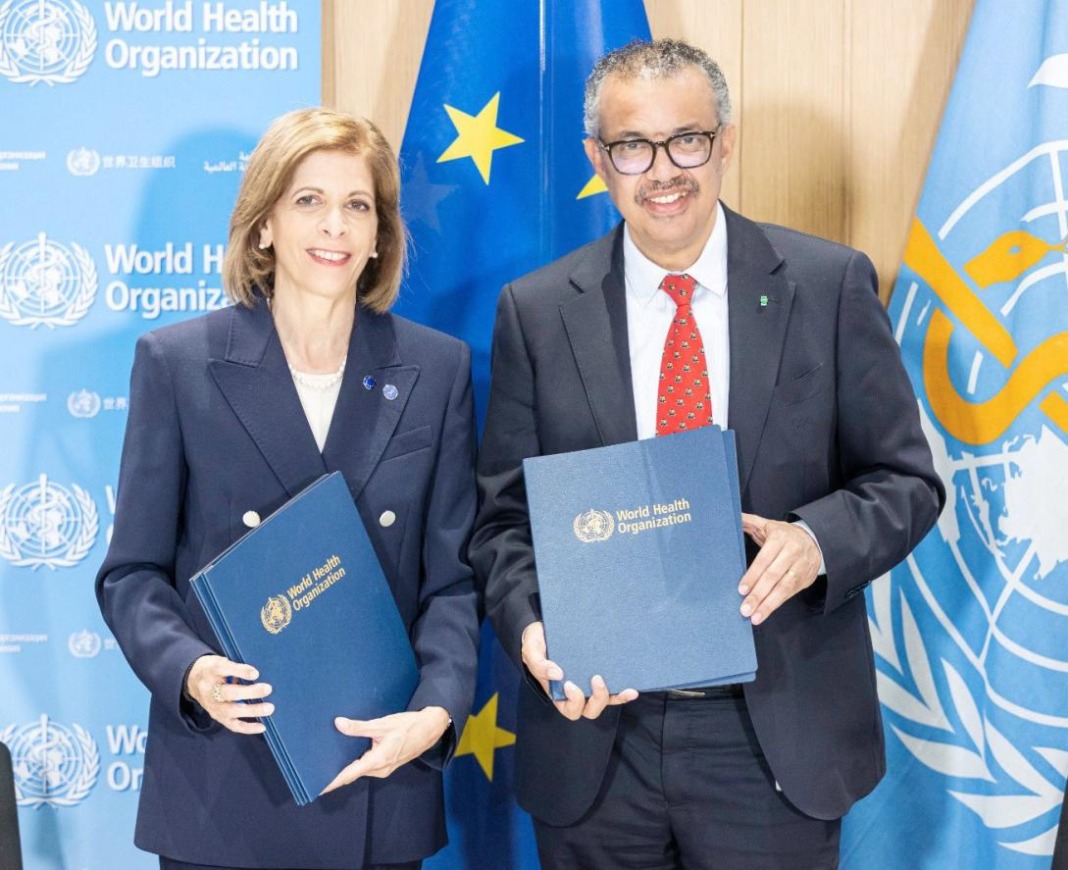In a significant collaboration, the World Health Organization (WHO) and the European Commission have joined forces to launch a groundbreaking digital health partnership. This initiative aims to establish a global system based on the European Union’s (EU) digital COVID-19 certification to facilitate global mobility and safeguard citizens worldwide from current and future health threats, including pandemics. The partnership represents the first step towards the development of the WHO Global Digital Health Certification Network (GDHCN), which will introduce a range of digital tools to improve healthcare accessibility for all.
Dr. Tedros Adhanom Ghebreyesus, Director-General of the WHO, highlighted the importance of this endeavor, stating, “Building on the EU’s highly successful digital certification network, WHO aims to offer all WHO Member States access to an open-source digital health tool, which is based on the principles of equity, innovation, transparency, and data protection and privacy. New digital health products in development aim to help people everywhere receive quality health services quickly and more effectively.”
The collaboration is based on the EU Global Health Strategy and the WHO Global Strategy on digital health. It builds upon the agreement reached between Commissioner Stella Kyriakides and Dr. Tedros Adhanom Ghebreyesus on November 30, 2022, to enhance strategic cooperation on global health issues. By aligning their efforts, the EU and WHO aim to strengthen the multilateral health system, with the WHO playing a central role, while leveraging the technical expertise of the European Commission.
Commissioner Stella Kyriakides emphasized the significance of the partnership, stating, “This partnership is an important step for the digital action plan of the EU Global Health Strategy. By using European best practices, we contribute to digital health standards and interoperability globally—to the benefit of those most in need. It is also a powerful example of how alignment between the EU and the WHO can deliver better health for all, in the EU and across the world.”
Under this partnership, close collaboration will be established for the development, management, and implementation of the WHO GDHCN system. The European Commission’s technical expertise in the field will contribute to ensuring the effective functioning of the current EU digital certificates.
Thierry Breton, Commissioner for Internal Market, praised the EU’s digital COVID-19 certificate, saying, “With 80 countries and territories connected to the EU Digital COVID-19 Certificate, the EU has set a global standard. The EU certificate has not only been an important tool in our fight against the pandemic but has also facilitated international travel and tourism. I am pleased that the WHO will build on the privacy-preserving principles and cutting-edge technology of the EU certificate to create a global tool against future pandemics.”
The EU’s digital COVID-19 certificates have been a crucial element in the bloc’s efforts to combat the pandemic and enable the free movement of people within its borders. The interoperable certificates, known as the EU Digital COVID-19 Certificate (EU DCC), quickly gained international recognition and became the most widely used solution globally. Now, WHO is establishing a global digital health certification network inspired by the EU DCC framework, principles, and open technologies. The collaboration aims to enhance global health preparedness, standard-setting, and validation of digital signatures to prevent fraud. Importantly, the personal data underlying these certificates will remain the exclusive domain of governments, with WHO having no access to such information.
The first stage of the global WHO system will become operational in June 2023, with plans for progressive development in the coming months. The partnership between WHO and the European Commission aims to contribute to the technical development, operation, and expansion of the WHO system, covering additional use cases such as the digitization of the International Certificate of Vaccination or Prophylaxis. The expansion of digital solutions is crucial for improving global healthcare and ensuring equitable opportunities for citizens worldwide.
This collaboration is founded on shared values and principles, including transparency, openness, inclusiveness, accountability, data protection and privacy, security, scalability at a global level, and equity. The WHO and the European Commission will work together to encourage widespread global adoption and participation, with a particular focus on ensuring equal opportunities for low and middle-income countries.
The partnership between the World Health Organization (WHO) and the European Commission holds great promise for Nigeria’s healthcare system. Nigeria, as a member state of the WHO, will have access to an open-source digital health tool developed by the collaboration. This tool will help Nigeria deliver quality health services efficiently and effectively, addressing the challenges posed by the COVID-19 pandemic and strengthening its healthcare infrastructure. It provides an opportunity for Nigeria to benefit from inclusive digital health solutions tailored to its specific needs.



